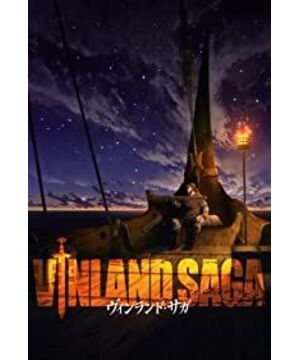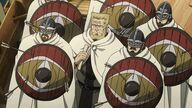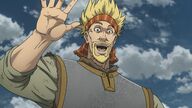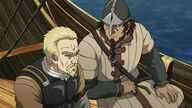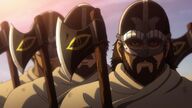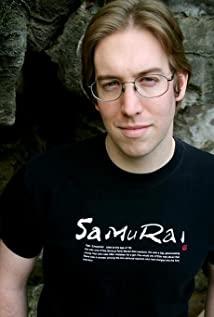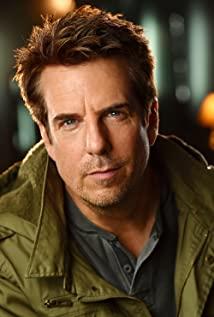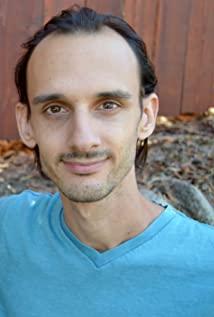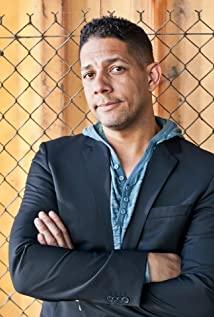"Vinland Saga" (Vinland Saga), as an excellent serious work, has at least two points that other commercial hits can't match: one is its heavy sense of history, and the other is its serious portrayal of the characters' minds . The two are intertwined and indispensable, because many people fall into misunderstandings when watching literary works of film and television, and use their own values to evaluate the shaping of characters, instead of understanding the characters in the context of the work. The historical setting of "Frozen" is the beginning of the mid-medieval period, when the Vikings ravaged Europe in a troubled time, the glory of the Roman Empire was long gone, and the modern Christian state was still in its birth. The many political forms and characters' beliefs involved in the play remind me of Mr. Chen Siyi's political philosophy class. I think it would be very interesting to invite him to read this work and then talk about his own analysis.
As a prelude to the entire series, the first season of "Frozen" generally has three short-term main lines on the surface, including Torfin's revenge, Asherath's plan and Prince Knut's awakening. In addition to this, there is a main line that runs through, that is, Thors' disarming and returning to the field, and everyone's yearning for the ideal homeland in their minds. Thors, the father and son of Tolfin are the first group of main lines we have seen. "Ice Sea War" here depicts the absolute peace developed by Thors, the unparalleled Viking warrior. ideological beliefs, and the traditional opening of his son Torfin on the road of revenge for him. An image like Thorz may not seem strange in modern society (in fact, it is extremely rare), but it is undoubtedly completely out of place in the Middle Ages, especially the Vikings. The most prominent label of the Vikings in all the film and television works that have been derived is that of martial arts, and only warriors can be truly respected in their community. At least in the first half of Frozen, what we see is a picture of power, morality is almost nowhere to be found, Thors is not understood, and Jesus is mocked because his martyred body is like that Thin, in the eyes of the Vikings is just a weak.
For revenge, the young Torfin was forced to integrate into such a world that followed the law of the jungle, with blood on his hands and empty anger in his eyes. His powers do grow like all teenage protagonists, but it's the fact that the father he's avenging is a violence-weary pacifist that makes his revenge seem ridiculous and chilling. The opinion of many critics on this play is that the protagonist is not likable, and this involves a problem of understanding the author's intention. The series of "The Battle of the Ice Sea" obviously takes the line of wanting to promote first and suppress it first. The protagonist in the prologue is not lovable, precisely because the author wants to create such an image of a bastard who has been hated and turned into a bastard, rather than a seemingly righteous but jerk. A thin, hot-blooded boy. However, Torfin still had the seeds of searching for redemption buried in his heart. He hated war almost from the beginning to the end, resisted being seen as a member of the Viking mercenary group, and always yearned for the name he heard when he was young. It is the ideal hometown of Wenlan. After the revenge, which had become the only purpose of his life, was completely emptied by the self-sacrifice of the enemy, Asherat, Tolfen could get a truly reborn growth.
Asherat is known as the real protagonist of the first season of "Frozen", and is even known as the most successful villain in recent years. I have to say that a charismatic villain has long been the standard for high-scoring anime. The big BOSS in "Blade of Ghost Slayer" has no merit except for his appearance, but it is not unusual. Although I am reluctant to use the labels of "decent" and "villain" lightly, from the plot of the slaughter of innocent villagers in episode 14, it can be confirmed that the author never intended to exclude Asherath from the list of villains. However, Asherat, who is a Danish and Welsh half-blood, is also contradictory. Like Torfin, he practiced martial arts for revenge, and followed the mercenary group to burn, kill and loot for his own goals, but he hated living with him day and night from the bottom of his heart. The Viking warrior, also hates himself with half Viking blood. In his view, these people who advocate violence and self-interest are "unbeautiful" and the product of civilization's degeneration. His true identity comes from his mother's Celtic-Roman ancestry, which is shown in the highlight moments of the final episode that belong to him. Dressed in a white Roman robe, he declared his true Latin name to the world, cut off the head of the Danish king in order to protect his homeland and the monarch he was loyal to, and sacrificed himself in a heroic manner as a Roman hero. Became the hero Artorius in his name who saved Wales. It can be said that the half of Asherath is thriving in the world where the strong eat the weak, while the other half is constantly looking back on the honor and virtue of Rome.
Asherat was able to truly be himself because he finally met a monarch who made him worthy of his life, Prince Knut. Unlike Asherat, Knut is a character looking to the future. He was the pioneer of the Viking nobles who converted to Christianity from the beginning, and will spread his faith throughout northern Europe as Knut the Great in the future. The world, and his nation will eventually be tamed by Christianity. "History of the Middle Ages in Europe" wrote, "In the 11th century, Scandinavia was in the process of civilization, and Knut grew up under this influence. He was no longer a savage Viking who did whatever he wanted. . He enacted laws, enforced Christianity, and defended peace." In "The Battle of the Ice Sea", even after awakening and embarking on the road to kingship, Knut still resents and avoids useless fights as much as possible. One of the more brilliant performances in the play is that he has been transformed by questioning his beliefs, and his disappointment with God makes him turn to the path of a secular monarch, which will bring him closer and closer to his father's "crown". Slaves", and regaining "love" may bring about a second growth.
The three main lines of "The Battle of the Ice Sea" are actually the same destination. The three protagonists are all in or about to approach their ideal land step by step. Whether it is Torfin's Vinland, Asherat's Avalon or the earthly paradise that Knut wants to build by himself, it seems to be an ethereal utopia, a hope in a troubled world. However, in terms of spiritual realm alone, Thors may have already taken the lead, and he is the real soul of "The Battle of the Ice Sea". Thorz's last words to his son were "A true warrior doesn't need a sword," so what does he need? The answer is actually not difficult to guess, it is "love", not specific love, but a kind of undifferentiated love in the world. The original Yukimura Makoto himself also revealed in an interview that the "love" he wanted to use as a cartoonist to explain is "agape". Thors insisted on paying a lot of money to redeem a slave he did not know, and insisting on saving the lives of every mercenary who wanted to kill him, because he loved everyone in the world equally. Such a realm may be as distant as Wenlan, but it is not without pioneers ahead. "The Battle of the Ice Sea" has just kicked off. As an audience, I look forward to watching the protagonist in the story set sail for the ideal land in his heart and for that bright color in Ragnarok.
View more about Vinland Saga reviews


